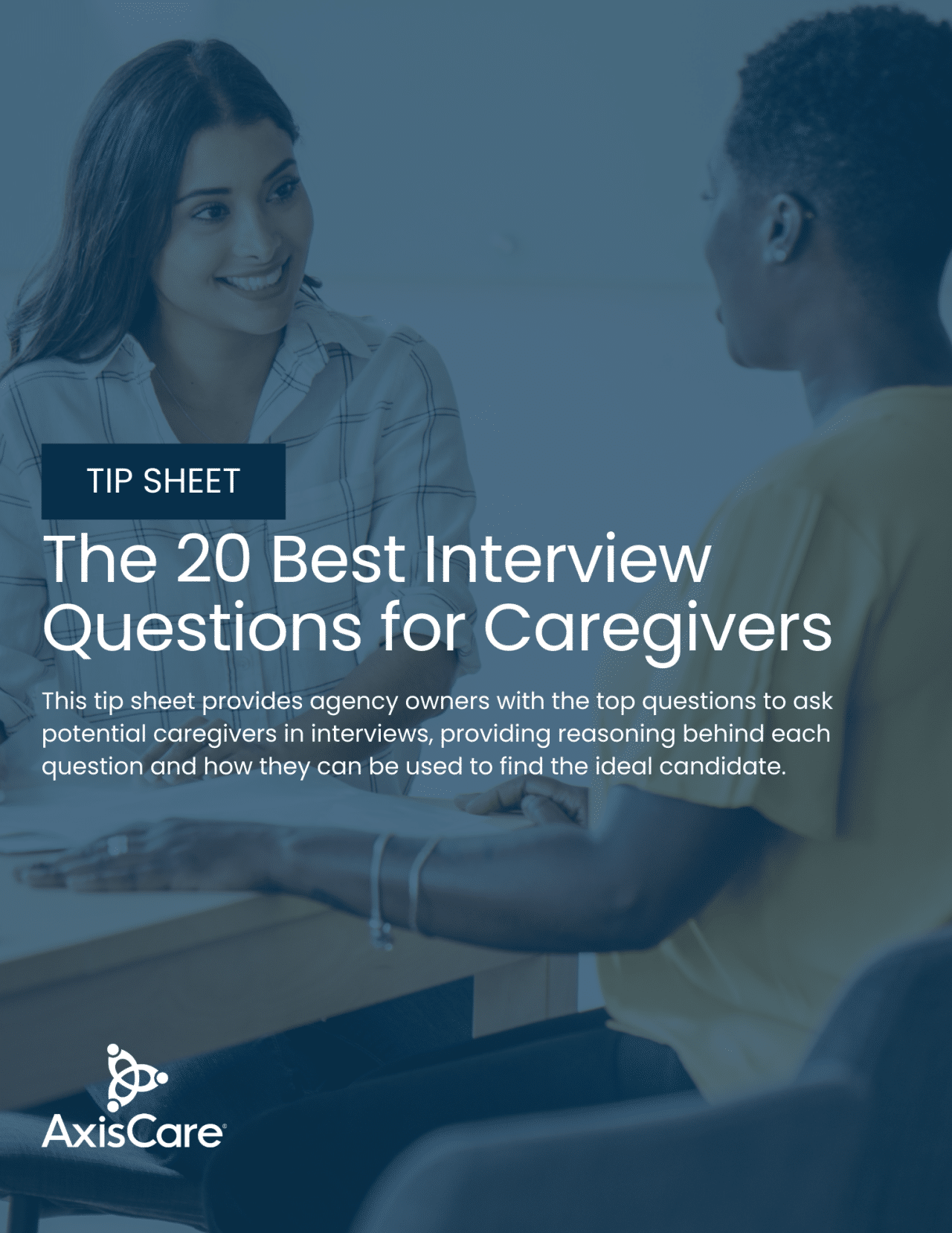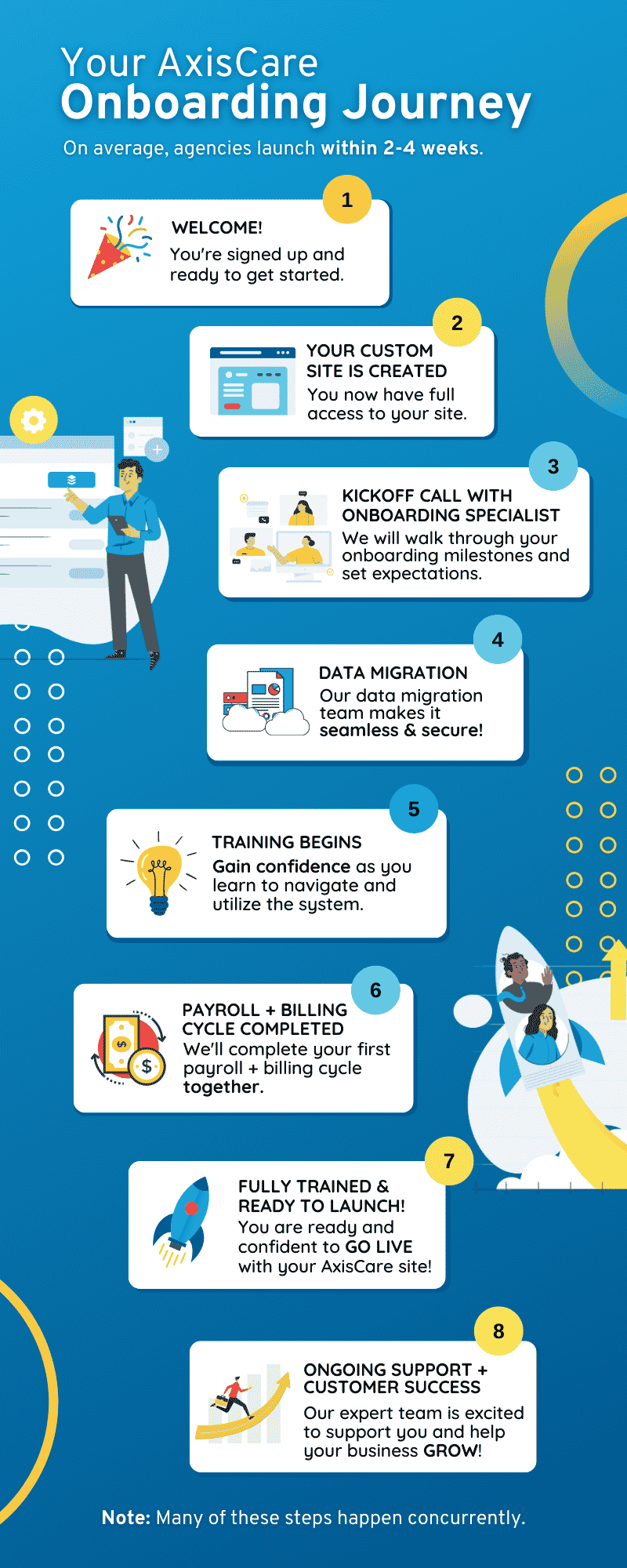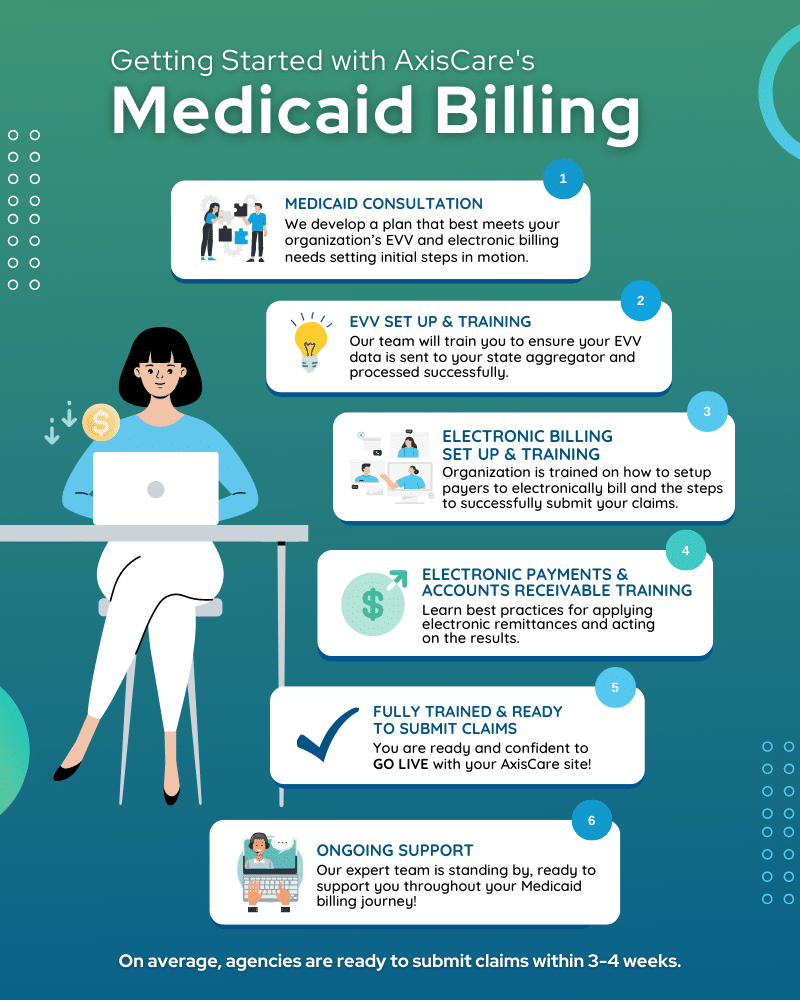The 20 Best Interview Questions for Caregivers
This tip sheet provides agency owners with the top questions to ask potential caregivers in interviews, providing reasoning behind each question and how they can be used to find the ideal candidate.
With caregiver shortages affecting home care agencies nationwide, it might be tempting to loosen your recruiting requirements to fill staffing gaps. But don’t fall into the trap: making hasty or ill-informed hiring decisions is a recipe for high turnover once it becomes obvious that new caregivers aren’t actually well-suited for the role.
Asking the right questions off the bat will reveal which candidates are serious about the position and qualified to serve clients versus candidates who aren’t a professional or cultural fit. It’s the first of many steps that define how to hire the right caregiver.
Download to continue reading…






